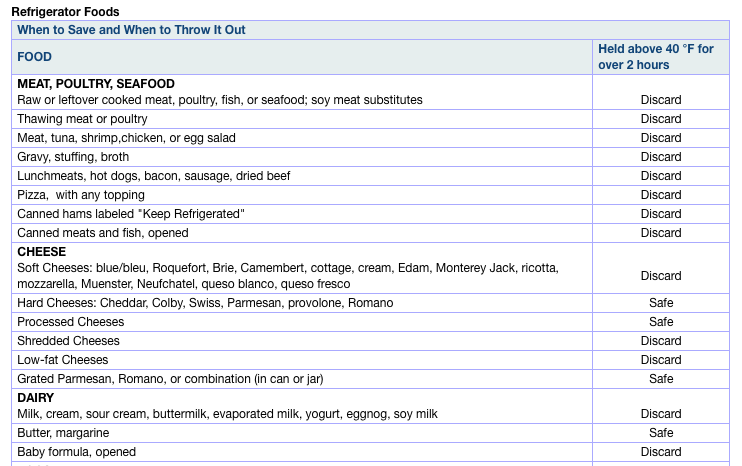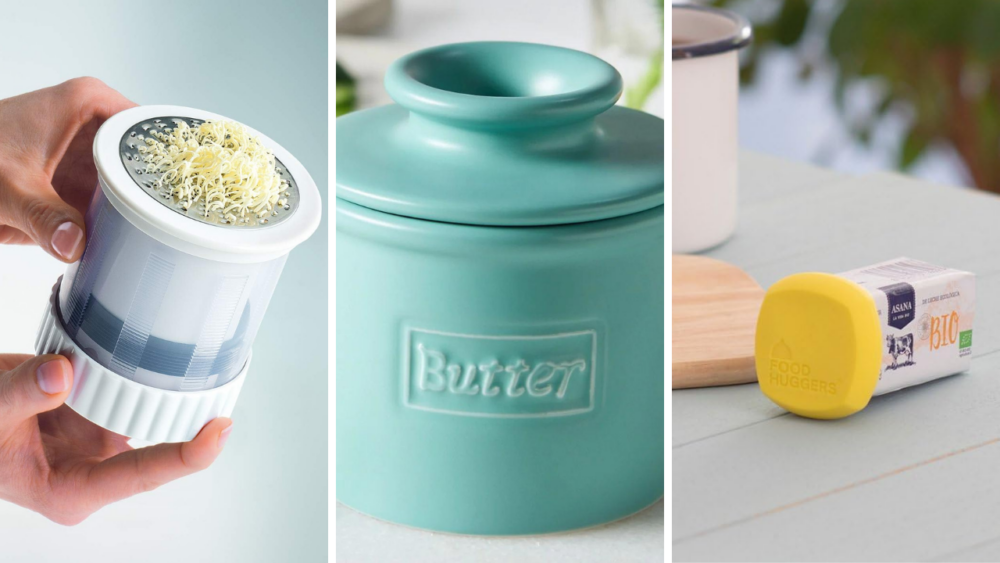Does butter need to be refrigerated?

- August 31, 2017 |Last updated on 05/19/2023
To fridge or not to fridge? That is the age-old question when it comes to the king of the kitchen, the lord of lard, your friend and mine: butter.
Is there anything better than a freshly toasted bagel with butter? No, there is not. But butter straight from the refrigerator is rock-hard. It doesn’t spread, and it can wreck our bagel and, quite frankly, our morning.
So what can we do? Butter is dairy. I can’t possibly just leave it on the counter, can I? I mean, just thinking of those sippy cups of milk I find in my minivan days later makes me dry heave.
It turns out that not all dairy is created equal. Butter is indeed dairy, but unlike straight-up milk, the process of making butter ensures its ability to stay pathogen-free.
Huh? Basically, butter is made through an emulsifying process that encapsulates fat molecules inside water — creating a fortress against icky stuff.
So, is it OK to just leave butter on the counter for spreadable, edible goodness?
To get to the bottom of the debate, I spoke with Ben Chapman, food safety expert and professor at North Carolina State University. According to Chapman, the bottom line is: Yes, it is okay to leave butter on the counter.
In order to ensure the best quality you just need to keep a few things in mind, Chapman says:
1. Salt Is Key
The saline solution of salt and water surrounding the fat molecules in butter is what keeps bacteria at bay. According to Chapman, foodborne pathogens can’t grow in the saline solution.
2. Get A Butter Buddy
From a quality standpoint, it’s all about limiting exposure to oxygen and light. So using a butter crock or the L. Tremain Butter Bell would be a great option. Chapman says temperature also plays an important role, so the warmer your kitchen, the quicker quality becomes an issue.
3. Keep It Clean
When using “counter” butter, use common sense to avoid cross-contamination. Use clean utensils, and no matter how tempting, don’t stick your fingers into the butter, lick them and go back for seconds.
4. Know When It Is Time To Toss
After about a week, the quality of the butter starts to break down. So, Chapman advises only keeping as much butter out as you can use up in a week’s time. Chapman also said that butter on the counter is much less a safety thing and more of a quality thing.
Still not sold? Check out this food chart. According to the USDA, butter is the lone dairy food listed as safe to keep when the power goes out.
In fact, butter-induced illness outbreaks are so rare, the last one was reported in the 1990s in Finland. And even then, listeria was found to be the result of a contaminated dairy source, not a storage-temperature issue.
RELATED: Here’s How Long Common Foods Last In The Freezer
Almost convinced, I had to ask Chapman, the man behind the aptly-named Barf Blog, one last question: Can butter that has been sitting on the counter for too long make us puke?
“Sure,” he said. “But chances are you will be reaching for the barf bag due to the rancid taste rather than a foodborne pathogen.”
Good enough for me. Bottom line: Keep it salty, keep it clean and only keep it for a week. Now, back to buttering my bagel.







